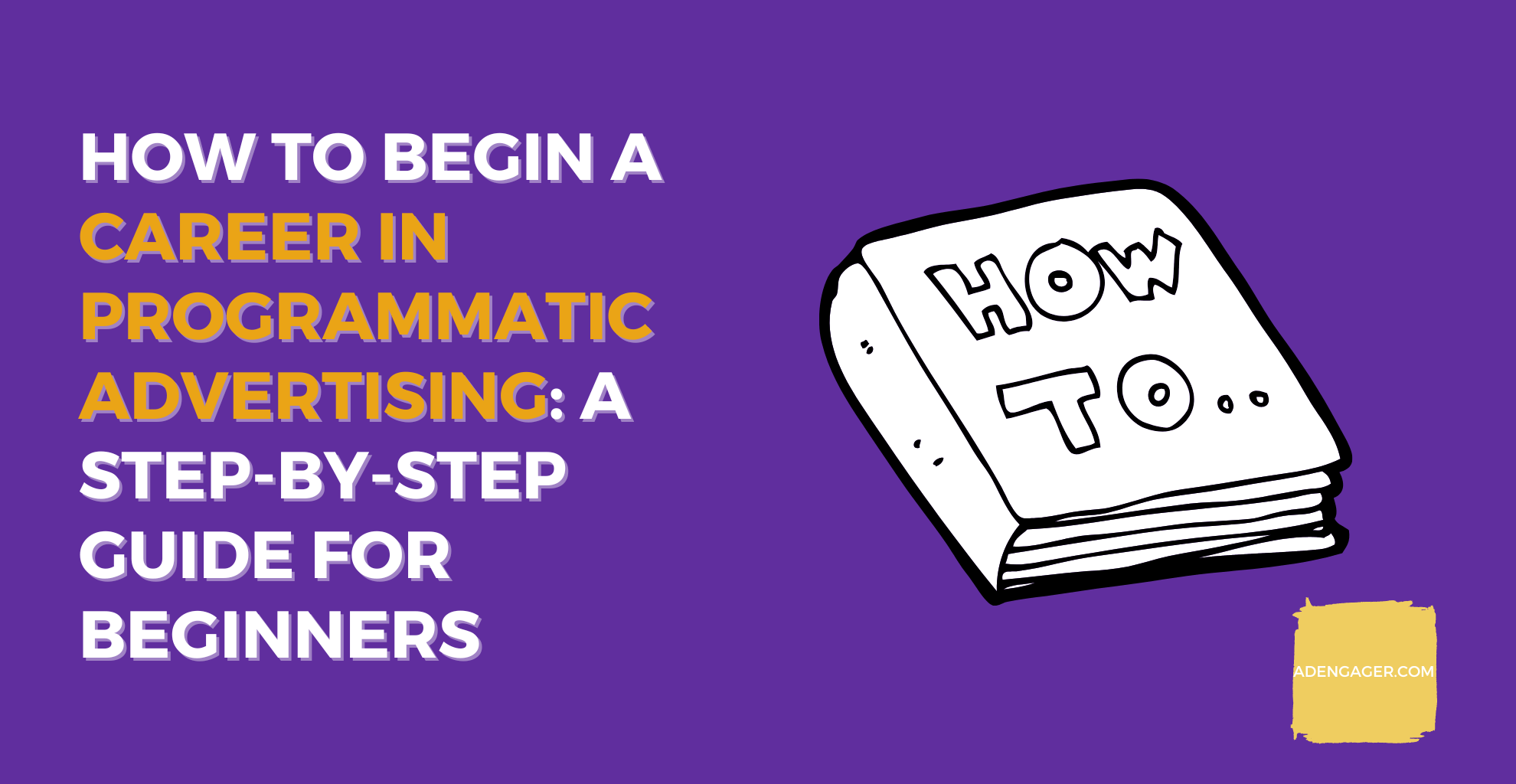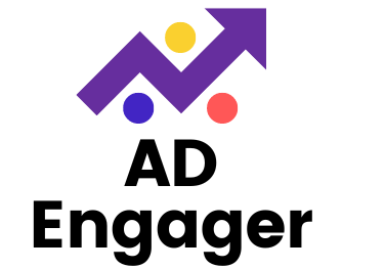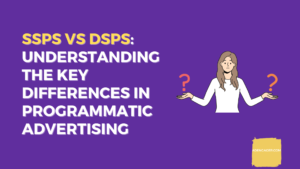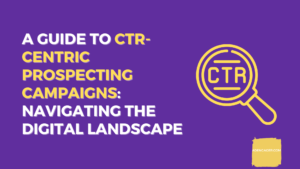How to Begin a Career in Programmatic Advertising: A Step-by-Step Guide for Beginners

Online advertising has become increasingly important in the modern day, and programmatic advertising has emerged as a game-changer in this space. We’ve created this blog to help you get started on the path to a successful career in programmatic advertising. The need for trained experts in programmatic advertising has skyrocketed in recent years, according to the dynamic field’s meteoric rise. Whether you’re a fresh grad searching for a new and exciting career path or a seasoned marketer trying to expand your horizons, learning about and being proficient in programmatic advertising may be a game-changer. With an eye toward the future of this fast-developing field, we will explore the inner workings of programmatic advertising, the educational and skill requirements, and the tactics for breaking into this business. Please put on your seatbelts because we’re about to go on an adventure to learn the ins and outs of programmatic advertising.
What is Programmatic Advertising?
Programmatic advertising is a high-tech, automated method of exchanging digital advertising inventory. Therefore, it’s important to understand what it is clearly. Ad placement, targeting, and optimization are all made easier because of the use of data-driven algorithms and technology. Programmatic advertising uses automated methods to make split-second judgments on ad placements, whereas traditional ad purchasing generally includes negotiations and manual placement. Which helps get the right ad in front of the right audience at the right moment.
Key Components of Programmatic Advertising
- Ad Exchanges: Marketers and publishers use ad exchanges to purchase and sell advertising space which are online markets. Advertisers may place bids on available ad space, and publishers can get the most money out of their inventory with the help of these systems, which permit real-time auctions. Programmatic advertising relies on ad exchanges to bridge the gap between publishers and advertisers.
- Demand-Side Platforms (DSPs): Advertisers and agencies utilize DSPs, or demand-side platforms, to coordinate their programmatic advertising efforts. These systems let advertisers reach their desired demographics, establish spending limits, and fine-tune the placement of their ads across several websites and ad networks. Using a DSP, marketers may tap into a large supply of available ads and optimize their campaigns using hard data.
- Supply-Side Platforms (SSPs): Publishers cannot function without Supply Side Platforms (SSPs). They facilitate publishers’ control over and improvement of their ad inventory for use in programmatic advertising efforts. By allowing publishers to set their prices and choose how much attention their ad spaces receive, SSPs help them maximize revenue.
- Data Management Platforms (DMPs): Programmatic advertising would not exist without data management platforms (DMPs). Data management platforms (DMPs) are specialized software for gathering, storing, and analyzing data on a target audience. Advertisers and publishers use data management platforms (DMPs) to learn more about their target audiences, categorize individuals according to different characteristics, and develop highly targeted ad campaigns. Because of their ability to provide pinpoint audience targeting, these platforms contribute significantly to the success of programmatic advertising.
- Real-Time Bidding (RTB): Programmatic advertising relies heavily on real-time bidding (RTB). It’s the practice of using computerized auctions to buy and sell advertising space in real time. Advertisers compete by placing bids for ad spots to reach a specific user depending on the targeting parameters they’ve established. Real-time bidding (RTB) facilitates immediate ad delivery and maximizes ad impressions for advertisers and publishers.
Programmatic Advertising and the Role of Data Data is the lifeblood of programmatic advertising. It allows for better decision-making by marketers and the delivery of more relevant adverts to consumers. Information about consumers, such as their demographics, online habits, and geographic location, helps marketers craft more effective ads. Furthermore, programmatic advertising is a dynamic and flexible digital marketing method since it constantly gathers and analyses data to optimize campaigns in real-time. The following paragraphs will discuss acquiring the understanding and competence essential for succeeding in today’s information-rich environment.
What Kind of Educational Prerequisites Are There for Programmatic Advertisements?
- Educational Background: Degrees in Marketing, Advertising, or Related Fields Those interested in a job in programmatic advertising would do well to have a degree in marketing, advertising, or a related discipline. Programmatic advertising requires a deep understanding of marketing theory, consumer psychology, and advertising strategy, all commonly taught in these programs. Programmatic advertising positions are more accessible to graduates of these schools because of their thorough familiarity with the marketing environment.
- Self-Taught Routes: Programmatic advertising is a growing area that places a premium on hands-on experience; nevertheless, not all industry leaders have marketing or advertising degrees. Self-study, online classes, and on-the-job training have helped many people carve out rewarding professional niches. Anyone interested in learning more about programmatic advertising may research available internet resources, such as tutorials and blogs written by professionals in the field. Gathering samples of your work from personal endeavors or freelancing gigs helps showcase your practical abilities to prospective employers.
Essential Skills for a Programmatic Advertising Career
- Analytical Skills: Analytical Abilities Data analysis is crucial in programmatic advertising. Professionals in this industry require formidable analytic skills to analyze campaign data, spot patterns, and base choices on hard evidence. Ad campaigns may be optimized for higher performance and return on investment (ROI) using analytical capabilities.
- Data Interpretation: Programmatic advertising relies heavily on the ability to understand and analyze data. To effectively target the correct audiences, you should be able to derive useful insights from data sources like DMPs. You can maximize the effectiveness of your advertising and targeting initiatives with expert data interpretation.
- Digital Marketing Knowledge: Knowledge of Digital Marketing It is essential to grasp digital marketing fundamentals fully. Programmatic advertising campaigns make more sense in the larger context of online advertising channels, SEM, SEO, SM, and content marketing. Understanding the programmatic context within the greater context of digital marketing is important.
- Technical Proficiency: Technical Capabilities Necessary for Success Working with Different Platforms and Tools, Such as DSPs and Ad Exchanges, is Essential in Programmatic Advertising. It would help to have the technical chops to make the most of these mediums. You don’t have to be a programmer, but you should at least be familiar with the technical components of programmatic advertising.
- Communication Skills:Ability to Communicate Programmatic advertising specialists frequently work with interdisciplinary groups that may include marketers, data analysts, and creative teams; thus, they must communicate with all of these groups effectively. Having the communication skills necessary to express intricate concepts, campaign findings, and suggestions is crucial. Client contacts are facilitated by strong communication skills, which in turn aid in developing and maintaining fruitful commercial partnerships.
Building a Strong Foundation
- Internships Internships are a great method to get real-world experience in programmatic advertising. Internships may be found in various settings, from small startups to multinational organizations. Interns get hands-on experience with real campaigns while learning about programmatic advertising technologies and best practices from seasoned pros. Internships are beneficial since they allow participants to meet new people, often leading to permanent employment offers.
- Entry-Level Positions: Consider entry-level digital marketing or advertising careers if you hope to enter the workforce immediately. Positions like “Ad Operations Coordinator” or “Digital Marketing Assistant” provide great jumping-off places. These roles allow me to get experience with programmatic advertising platforms and build a career in the industry.
- Freelance Opportunities: Opportunities to Work as a Freelancer One way to get started in programmatic advertising is to work as a freelancer. Freelance programmatic specialists are in high demand by corporations and advertising agencies. With this strategy, you may establish a portfolio of your work and gain valuable hands-on experience. The tasks you take on as a freelancer can be tailored to utilize your skills and interests best.
Certifications and Training
- Google Ads Certification: In the world of programmatic advertising, Google Ads is a powerhouse. Getting certified in Google Ads for Search or Display will help you stand out and land a better job. These badges attest to your mastery of Google Ads, a prevalent platform for programmatic advertising campaigns.
- IAB Digital Media Sales Certification: The Digital Media Sales Certification from the Interactive Advertising Bureau (IAB) is a credential that proves your expertise in selling digital ads, particularly those purchased through programmatic channels. Essentials like ad technology, programmatic buying, and digital marketing techniques are covered in depth. This credential might set you apart from the competition when applying for sales and account management jobs in your field.
- Programmatic Advertising Courses: Invest in your future by taking some time to study programmatic advertising. Programmatic advertising is taught at a wide variety of online platforms and universities. Real-time bidding, ad networks, and ad exchanges are only some subjects covered in these classes. You can learn to utilize programmatic platforms like a pro by enrolling in a course that gives you practical experience with them.
You’ll be ready to commence your career in programmatic advertising with the right mix of hands-on experience and certifications or training. The best way to succeed in such a fast-paced industry is to gain the necessary information and experience through classroom study and on-the-job training. The following paragraphs discuss methods for establishing professional connections and expanding one’s programmatic advertising career.
Networking and Industry Involvement
- Joining Professional Associations Joining Professional Organisations Networking within programmatic advertising-specific professional organizations can lead to fruitful relationships and insights. You could join groups like the American Advertising Federation (AAF) or the Interactive Advertising Bureau (IAB). You should join an industry organization to keep up with the latest developments in your field and network with other experts.
- Attending Industry Conferences and Events: The best way to keep up with the ever-changing landscape of programmatic advertising and to network with thought leaders is to participate in relevant industry conferences and events. Learn more about programmatic advertising by attending conferences like AdExchanger’s Programmatic I/O, AdWeek’s Programmatic Advertising Summit, and the Programmatic Marketing Summit. Professionals, experts, and influential thinkers congregate at these events, making it easy to connect, gain new knowledge, and swap anecdotes.
- Networking on LinkedIn and Other Platforms :Online networking through sites like LinkedIn is just as important as face-to-face meetings in the modern era. LinkedIn is a great resource when looking to network with other programmatic advertising experts. Participate in discussions, provide your expertise, and connect with others who share your interests by joining the appropriate LinkedIn groups. Keep up with the latest advancements in your field by keeping tabs on key players and organizations.
- Mentoring Relationships: A good mentor may do wonders for your career in programmatic advertising. Find knowledgeable people who are willing to help you and willing to share their expertise. A mentor can help you succeed in programmatic advertising by giving you insight, access to their network, and guidance through the industry’s difficulties and possibilities. The knowledge and contacts you gain from a mentor can help you advance quickly in your profession.
Making connections and participating in the business may lead to new possibilities, partnerships, and advancement in your career. Strong networks can help you stay ahead of the curve in the ever-changing world of programmatic advertising. In what follows, we’ll discuss steps you may take to land your first job in programmatic advertising.
Navigating the Job Market
- Crafting an Impressive Resume and Cover Letter: Your resume and cover letter are the first impressions you make on potential employers; as such, they should be appealing and geared toward work in programmatic advertising. How to make them more noticeable:
Put your internship, freelancing, or school experience in programmatic advertising to good use by highlighting your relevant talents and background.
To impress your potential employer, you should quantify your successes by providing concrete examples, such as “managed a $50,000 programmatic ad campaign” or “increased click-through rates by 20%.”
Include relevant technical abilities, such as experience with DSPs, DMPs, or other programming-related tools.
Personalize Your Applications Personalise your resume and cover letter for each position you apply for by addressing particular needs listed in the job posting. - Preparing for Interviews: Interview Preparation Technical and hypothetical questions based on the programmatic advertising campaign are common in interviews. Some advice on how to ace the interview follows:
Brush your knowledge of programmatic advertising fundamentals, ad tech, and market trends.
Develop problem-solving skills by practicing hypothetical situations like managing real-time bidding or optimizing a marketing campaign.
Demonstrate your capacity for analysis by discussing your prior work with data and the steps you took to use that information to further your campaign.
If you have a portfolio of past work to present, be ready to talk about its strengths and weaknesses. - Leveraging Internships and Freelance Work: Make the most of your internship and freelance experience if it relates to programmatic advertising and you’re looking for a career in this field.
You should include them on your resume, focusing on your roles, the results you achieved, and your honed abilities.
References should be sought by inquiring with previous employers, such as those held during internships or freelancing.
In interviews, it’s important to talk about your past experiences and how they’ve prepared you for the position you seek. - Job Search Strategies: Finding the perfect position in programmatic advertising calls for a systematic approach to the job market:
You may find programmatic advertising jobs on websites like LinkedIn, Indeed, and Glassdoor. Create an alert to be notified when suitable positions become available.
Make use of your professional contacts to find out about available positions. Be bold about asking for help from people in higher positions or your field.
Go to conferences and other industry events and network with people there. Always have extra business cards and your résumé on hand.
Landing Your First Programmatic Advertising Job
- Entry-Level Positions: They may be a great way to get experience and network if you need help landing a full-time job.
The employment market is competitive; thus, you should keep going even if rejected. Use your method and make adjustments based on what you learn. - Junior Programmatic Analyst: You will assist the programmatic advertising team in numerous ways as a Junior Programmatic Analyst. You’ll help organize campaigns, examine data, and compile reports.
Check for postings for “entry-level” or “junior” programming positions. Candidates with a solid grasp of programmatic advertising ideas but minimal practical experience are encouraged to apply. - Ad Operations Coordinator: Technical campaign management is the domain of the Ad Operations Coordinator. Ad trafficking, quality assurance, and problem-solving are common duties in this position.
Try your luck landing an Ad Operations Coordinator career with a digital marketing firm or in-house marketing department.
YOU MAY AlSO LIKE: YouTube Advertising: A Step-By-Step Guide For Brands
Continuing Education and Career Advancement
- Observing Recent Developments in Your Field: The world of programmatic advertising moves quickly, with new developments in technology and tactics appearing often. Follow news in your field by checking out relevant periodicals, blogs, and the social media profiles of thought leaders. Keep up with the newest developments in programmatic advertising by participating in webinars, seminars, and conferences. Join online groups and forums where experts in your field can talk, shop, and share knowledge.
- Seeking Professional Accreditation : Gaining additional credentials in programmatic advertising will help you stand out as an industry expert as your career progresses. Possible Courses of Action
- Certifications for Google AdWords Expertise
- Accreditation for Programmatic Ads by the IAB
- Credentials in the Fields of Data Science and Analytics
- Promotion in One’s Profession: Opportunities for promotion in programmatic advertising become available as one acquires knowledge and skill. Examples of possible functions include:
- Programmatic Manager
- Senior Ad Operations Specialist
- Account Director
- Data Analyst
- Strategist
Finally, as programmatic advertising evolves with emerging technologies, data privacy regulations, and expanding opportunities, the future of this field promises continued growth and innovation.
In pursuing a programmatic advertising career, remember that dedication, continuous learning, and a passion for data-driven marketing will be your keys to success. Whether you’re just starting or looking to advance your career, the programmatic advertising landscape has possibilities. You can thrive in this ever-evolving industry with the right knowledge and determination. So, embrace the journey, stay curious, and let your career in programmatic advertising flourish.






